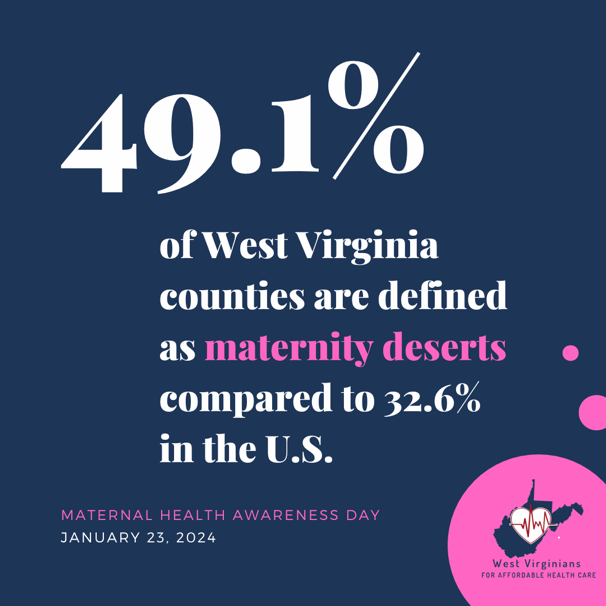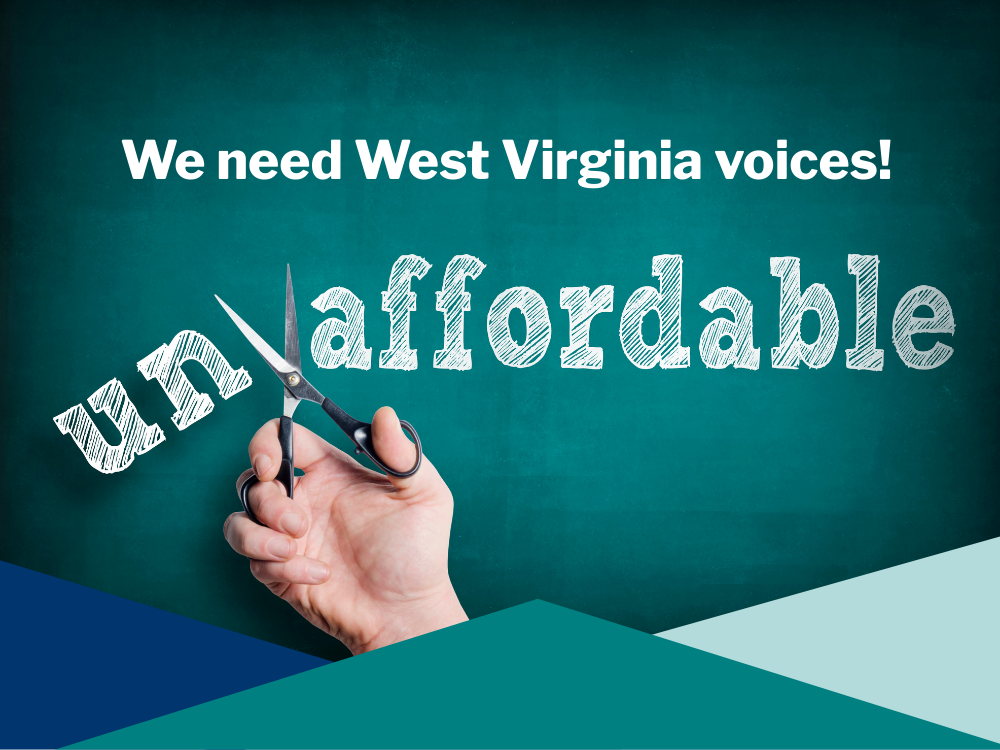- Like
- Digg
- Del
- Tumblr
- VKontakte
- Buffer
- Love This
- Odnoklassniki
- Meneame
- Blogger
- Amazon
- Yahoo Mail
- Gmail
- AOL
- Newsvine
- HackerNews
- Evernote
- MySpace
- Mail.ru
- Viadeo
- Line
- Comments
- Yummly
- SMS
- Viber
- Telegram
- Subscribe
- Skype
- Facebook Messenger
- Kakao
- LiveJournal
- Yammer
- Edgar
- Fintel
- Mix
- Instapaper
- Copy Link
By Kim Jones, Coordinator Health Care for All-WV
Access to maternal healthcare is a crisis around the country, especially rural states. More than 2.2 million US women live in maternity care deserts, which means that in their county there are no hospitals that provide obstetric care, birth centers, ob/gyns or certified nurse midwives. Between 2019 and 2020, there was a 10% decrease in birthing hospitals in West Virginia. Access to maternity care in West Virginia, especially among Black, Indigenous and people of color (BIPOC), is not consistently available as more than 49% of counties are defined as maternity care deserts compared to 32.6% in the U.S.
Last year, the March of Dimes put out this Maternal Health Report Card for West Virginia. WV Public Broadcasting gets into the details here and it doesn’t paint a healthy picture.
Women in the Mountain State deserve to have the best care before and after their babies are born. It is up to our leaders to make sure these services are available.
One bill we are watching this session which would help expectant mothers is SB 313. It would require any insurance plan, including Medicaid, that offers maternity services to cover doula
care. Doula’s are not medical staff, but are trained to accompany mothers while pregnant, help mothers create a birth plan, educate them about pregnancy and labor, and teach them relaxation techniques. They are companions during labor and help the mother with relaxation, massage and breathing. After the baby is born, doula’s provide support on feeding the infant, soothing and comforting the infant, healing after a birth and coping skills for new parents. Doula care is credited with better birth outcomes, like fewer premature births, fewer C-sections and shorter length of labor.
Meanwhile, as Mountain State Spotlight reports, lawmakers are considering changes to infant and maternal mortality investigations, but disagree on how much discretion to give review teams.
Other Health Care Bills We’re Watching
We are also watching SB 374, a bill to increase the dental benefit for adult Medicaid recipients from $1,000 to $2,000 a year. Health Care for All worked to get the original benefit passed in 2020, and have been working to increase those benefits ever since. We applaud Senator Takubo for introducing the bill this year and hope to see it pass.
We are very concerned about a large number of anti-vaccination bills that are coming up this session. With measles outbreaks happening around the country right now, we know that public health is at risk if we sacrifice our herd immunity to diseases we have had under control. These bills are dangerous to our children and our communities.
There are also a disturbing number of bills that would affect women’s reproductive health and LGBTQ folk. We will keep you updated!



